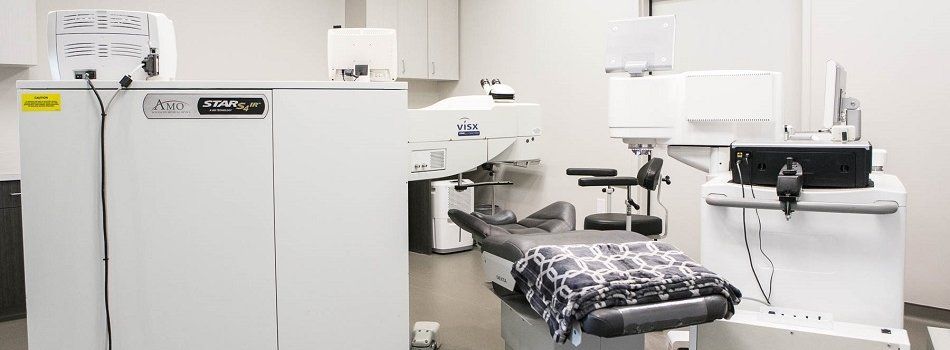PRK SURGERY
PRK Surgery (photorefractive keratectomy) is the second most common laser eye procedure used to treat and correct vision problems including farsightedness (hyperopia), nearsightedness (myopia), and astigmatism.
PRK is the predecessor to the popular LASIK procedure and is still commonly performed. While recovery from PRK surgery takes longer than recovery from LASIK eye surgery, for some patients (those with thin corneas, for example) it does offer certain advantages over LASIK.
PRK Surgery vs LASIK
The end results of PRK surgery are comparable to LASIK Surgery results, but initial PRK recovery is slower because a new epithelial layer takes time to grow back to cover the surface of the eye. Vision improvement with PRK also takes place gradually, so the final outcome can take several weeks.
The main benefit with PRK is the entire thickness of the underlying stroma is available for treatment, as the surgery does not create a corneal flap (contains epithelial and stromal layers). This is of particular benefit when the cornea is too thin for LASIK
Pros vs LASIK:
* No risk of complications related to creating a corneal flap
* Less depth of laser treatment compared to LASIK
* Reduced risk of compromised corneal thickness
* Suitable if the cornea is too thin for LASIK
Cons vs LASIK:
* Higher risk of post-surgery haze, inflammation and infection
* Patients experience more discomfort during recovery than LASIK patients
* Slower recovery times compared to LASIK
* End results take longer to stabilize
* Follow-up enhancements with LASIK are easier if needed
WE WOULD LOVE
TO SEE YOU
Contact Us
PRK Surgery: The Procedure
PRK Surgery is started by removing a portion of the surface of the cornea or epithelial tissue. This means there is no need for flap creation, and the removed tissue grows back. Once the epithelium is removed, an excimer laser (the same laser used in LASIK) is used to reshape the cornea.
So, just like with LASIK, PRK works by reshaping the cornea to allow light to enter the eye in focus so it is properly translated onto the retina for clear, crisp vision.
To learn more, or to find out if you are a candidate for PRK Surgery, please Call (512) 528-1144 or Contact Us.



